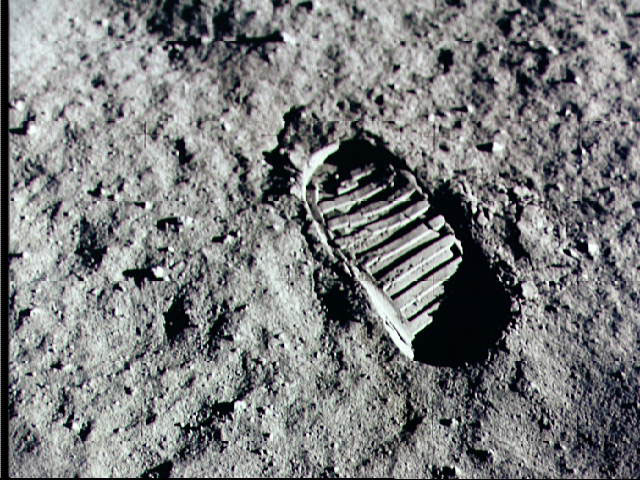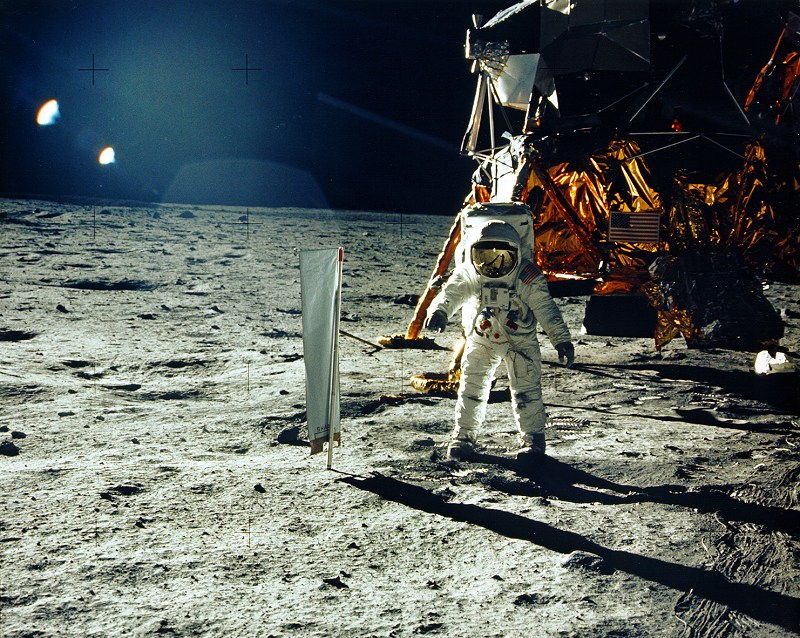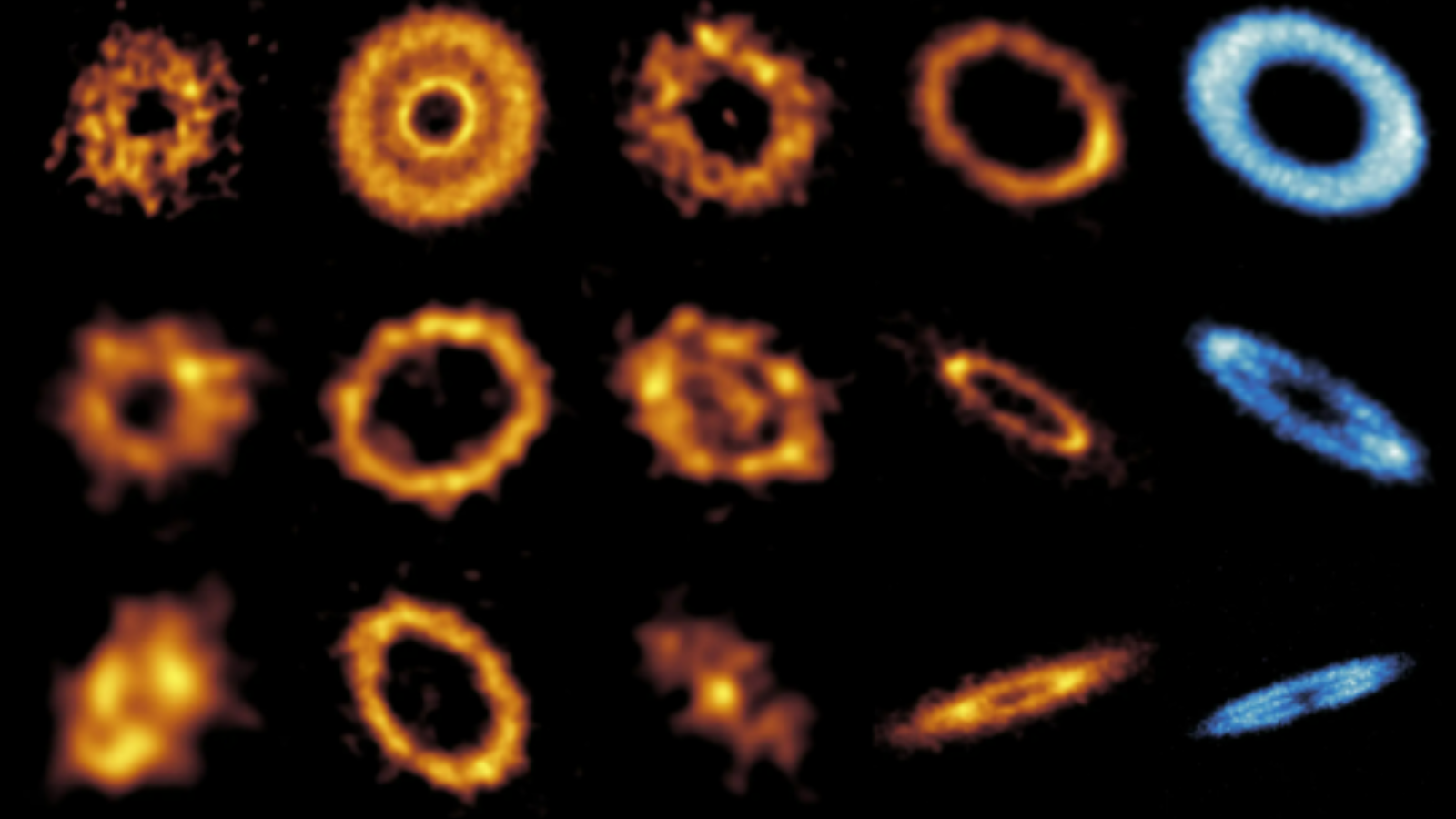Apollo 11 Flight Log, July 23, 1969: Preparing for Landing
Click unmute on the video above hear mission audio from Flight Day 8 of the Apollo 11 mission and listen to over 50 minutes of audio in the video from NASA below.
This summer marks the 50th anniversary of NASA’s Apollo 11 mission. Fifty years ago today (July 23), the Apollo 11 crew rested from their lunar escapades, filmed a television broadcast in which they reflected on their journey, and prepared to re-enter Earth’s atmosphere and return home.
Most of the mission was behind them, but the Apollo 11 crew still faced the challenge of getting back to Earth. Neil Armstrong (commander), Michael Collins (command module pilot) and Buzz Aldrin (lunar module pilot) had one last full day in space before a planned splashdown in the Pacific Ocean the next day.
- Relive the Apollo 11 Moon Landing Mission in Real Time
- Apollo 11 at 50: A Complete Guide to the Historic Moon Landing
- Apollo 11 Moon Landing Giveaway with Simulation Curriculum & Celestron!
The Apollo 11 crew spent mostly a quiet day resting up and making preparations for the landing, but they did do a live television broadcast that evening where they reflected upon their journey # the first moon landing in the eyes of the many who watched.
"A hundred years ago, Jules Verne wrote a book about a voyage to the moon," said commander Neil Armstrong in the broadcast, referring to the book From the Earth to the Moon.
"His spaceship, Columbia took off from Florida and landed in the Pacific Ocean after completing a trip to the moon. It seems appropriate to us to share with you some of the reflections of the crew as the modern-day Columbia completes its rendezvous with the planet Earth in the same Pacific Ocean tomorrow."
Apollo 11 Moon Landing 45th Anniversary: Complete Coverage
Breaking space news, the latest updates on rocket launches, skywatching events and more!
Added Collins: "It may have looked to you simple or easy. I would like to assure you that has not been the case." He enumerated several examples, but began with the rocket that brought them into space in the first place. "The Saturn V rocket, which put us into orbit, is an incredibly complicated piece of machinery, every piece of which worked flawlessly."
The next day would see the crew aim for a pinpoint landing in the Pacific Ocean, where if all went to plan, they would be hoisted on to a recovery ship to begin three weeks of quarantine just in case they brought any microbes back. (The measures later proved unnecessary.)
Apollo 11 Flight Log:
July 22, 1969: Firing Engines for Earth Return
July 21, 1969: Launching from the Moon
July 20, 1969: The Moon Landing
July 19, 1969: Live TV from Near the Moon
July 18, 1969: Entering the Moon's Gravity
July 17, 1969: Course Correction to Reach the Moon
July 16, 1969: Launch Day
Editor's note: This feature, originally posted in 2014, has been updated for the 50th anniversary of the Apollo 11 mission. Space.com contributor Chelsea Gohd contributed to this report.
Follow Elizabeth Howell @howellspace, or Space.com @Spacedotcom. We're also on Facebook and Google+.

Elizabeth Howell (she/her), Ph.D., was a staff writer in the spaceflight channel between 2022 and 2024 specializing in Canadian space news. She was contributing writer for Space.com for 10 years from 2012 to 2024. Elizabeth's reporting includes multiple exclusives with the White House, leading world coverage about a lost-and-found space tomato on the International Space Station, witnessing five human spaceflight launches on two continents, flying parabolic, working inside a spacesuit, and participating in a simulated Mars mission. Her latest book, "Why Am I Taller?" (ECW Press, 2022) is co-written with astronaut Dave Williams.


